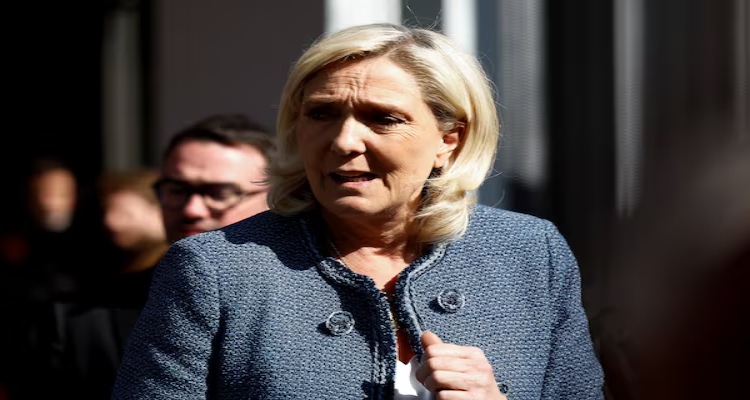
French far-right leader Marine Le Pen dramatically exited a courtroom after a French court found her guilty of embezzling European Union funds.
The presiding judge has barred her from seeking public office, though the length of the ban remains undecided.
Courtroom Exit Amidst Legal Fallout
As the verdict was announced, Le Pen, 56, showed no immediate reaction but nodded in disagreement when the judge elaborated on the charges. In a moment of high drama, she stood up, walked out of the courtroom, and left the courthouse without waiting for the sentencing details.
The court’s ruling found Le Pen and eight other current or former members of her party, previously serving as European Parliament lawmakers, guilty of misusing EU funds. They face up to 10 years in prison, though they are entitled to appeal, which would trigger a new trial.
The Case
The court determined that Le Pen’s party, the National Rally (formerly known as the National Front), illegally used EU funds meant for parliamentary aides to pay staff who worked for the party between 2004 and 2016.
The judge described the scheme as a “democratic bypass,” noting that while Le Pen and her co-defendants did not personally enrich themselves, they had engaged in deceptive practices that undermined voter trust.
Prosecutors highlighted that some of the misused funds were allocated to pay for Le Pen’s bodyguard—who had previously served her father—and her personal assistant.
Political Implications
One of the most significant consequences of the ruling is the potential for Le Pen to be declared ineligible to run for public office “with immediate effect,” even if she appeals. This could block her from contesting the 2027 presidential election, a prospect she has described as a “political death.”
During the trial, Le Pen argued that such a ban would disenfranchise the 11 million voters who supported her movement.
“If I can’t run, millions of French people would be deprived of their candidate,” she told the panel of judges.
If barred, her protégé, Jordan Bardella, 29, who succeeded her as party leader in 2021, is seen as her likely successor.
Divided Verdict
In addition to Le Pen and her eight co-defendants, 12 others connected to the party, including former parliamentary aides, were found guilty. Prosecutors had recommended a two-year prison sentence and a five-year ineligibility period for Le Pen.
Le Pen has consistently denied the allegations, claiming that the aides’ work for her party was legally permissible and arguing that it was part of normal political activities.
“They are not interested in justice; they’re only trying to prevent me from running for president,” Le Pen stated after the verdict.
Turning Point For French Politics
This ruling represents a significant moment in French politics, not just for Le Pen but for the broader far-right movement in Europe. The case has raised questions about transparency, accountability, and the influence of money in politics—issues that will likely echo beyond France’s borders.
As Le Pen prepares to challenge the verdict, the nation watches closely, aware that the outcome could reshape the 2027 presidential race and the future of her political dynasty.
Read More: Supreme Court, Delhi High Court, States High Court, International




